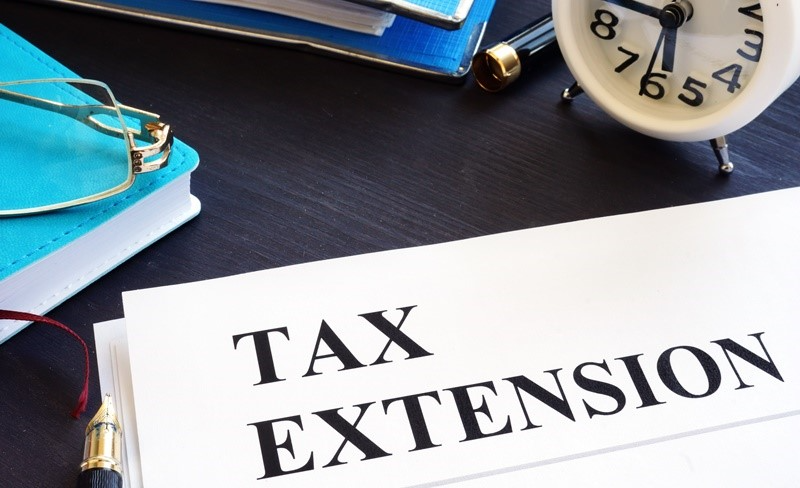Don’t Be Late – File for a Tax Extension

The IRS knows that not everyone may be able to file their tax return by the tax deadline, which is typically April 15th except in the case of a weekend or holiday, whether it is because you were waiting for more documents, waiting for someone to prepare the tax return, or you just weren’t able to find time to do it yourself. In such instances, individuals filing a 1040 individual tax return can file form 4868 prior to the April 15th deadline and the IRS will grant a 6 month filing extension.
This extension typically gives you until October 15th to file your return. It does not, however, give you additional time to pay any balance that may be owed. So, if you owe taxes and the full amount owed is not paid by the April 15th deadline, you will incur a failure-to-pay penalty and interest will accrue.
Some of you are probably wondering, if filing for an extension doesn’t protect you from tax penalties and interest accrual, why bother to file an extension? Here are three excellent reasons you should always file one.
Why to File for a Tax Extension
1. Avoid the Failure to File Penalty
If you have a balance due on your tax return and don’t file by April 15th, a failure to file penalty will be assessed. This is usually one of the largest, fastest accruing penalties charged, at a whopping 4 ½% PER MONTH. When that is combined with the failure-to-pay penalty (½%/month) the total is 5% per month until it maxes out at 25% (five months). That means if you owe $1,000 on your tax return, but you don't file an extension and you don’t pay until Sept 15th, you will owe an additional $250 in penalties AND you would also have accrued interest on this amount. That is a pretty steep penalty that can easily be avoided by filing for an extension on or before April 15th and then getting your tax return filed by the extension deadline.
2. More Time to be Eligible for Certain Credits
If you have an individual taxpayer identification number (ITIN) or a social security number (SSN), you are eligible for three major tax credits as long as you file your taxes by the April 15 tax deadline or file for an extension and file by the extension deadline. Failing to file for a tax return extension could cost you a significant amount of money if you would have otherwise been able to claim these deductions: Child Tax Credit/Credit for Other Dependents, American Opportunity Tax Credit, Earned Income Tax Credit. To help you determine if you qualify for any of these tax credits you can use the interactive tax assistant on the irs.gov website.
3. More Time to Get Your Refund
Let’s say you were due a refund but for some reason you just didn’t file your tax return, for years. Typically, you have three years from the original due date to file the return and still receive the tax refund. However, if you took the time to file an extension each year, which on average only takes about 15 minutes, you would have an extra six months to file your return to get that refund. For example, April 15th 2019 was the final date to file your 2015 tax return and qualify to receive your refund, unless you timely filed an extension in which case you would then have until October 15th 2019 to file your 2015 return in time to get a refund.
Important things you need to know about filing an extension:
- If you do not fill out the 4868 completely and make a good faith effort to correctly estimate your tax liability, the IRS can decide not to grant you the extension of time to file.
- The IRS can also decide not to grant you the extension of time to file if the 4868 is not received or postmarked by the due date of the return, typically April 15th.
- According to the IRS, if you are a US citizen or resident alien residing overseas or you are military on duty outside the US on the due date of the return, you are allowed an automatic 2-month extension to file and pay your taxes and/or request an additional extension with a 4868. Keep in mind, if you qualify for the automatic 2-month extension, the extension the 4868 provides will only give you an additional four months, not six.
- If you have a balance due on your return, make sure you pay that balance with your extension on or before April 15 to avoid penalties and interest from accruing. That way, as long as you file your return by October 15th, you are avoiding not only the hefty failure-to-file penalty but also the failure-to-pay penalty and the interest as well. If you over-estimate your taxes owed, you will receive a refund or you may choose to apply the refund to the following tax year so it’s a win, win situation.
- Just because you file an extension does not mean you need to wait until October 15th to file your return. Don’t procrastinate and chance missing the extension deadline.